
Culture
21:01, 12-Nov-2018
Hani people celebrate their New Year with special banquet
Updated
20:10, 15-Nov-2018
By Yang Jinghao, Li Yang, Bai Xinglong
02:05
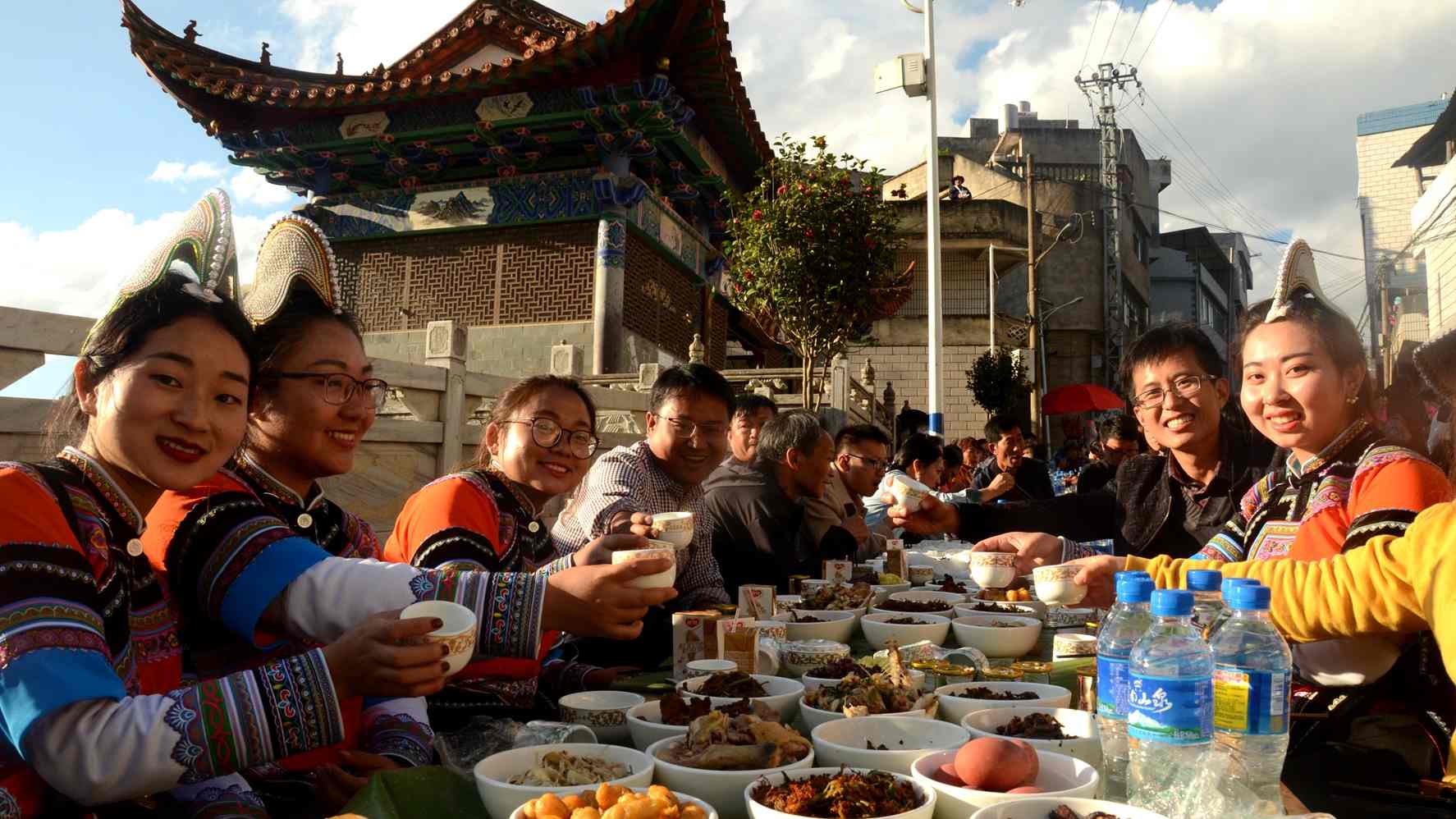
With hundreds of tables full of an array of local delicacies filling the streets, the Hani people in Honghe County, southwest China's Yunnan Province, celebrated their New Year with a traditional grand banquet over the weekend.
Called the Long Street Banquet or "Changjieyan" in Mandarin Chinese, the event with a long history is an integral part of this important festival for the Hani, one of China's 55 ethnic minorities.
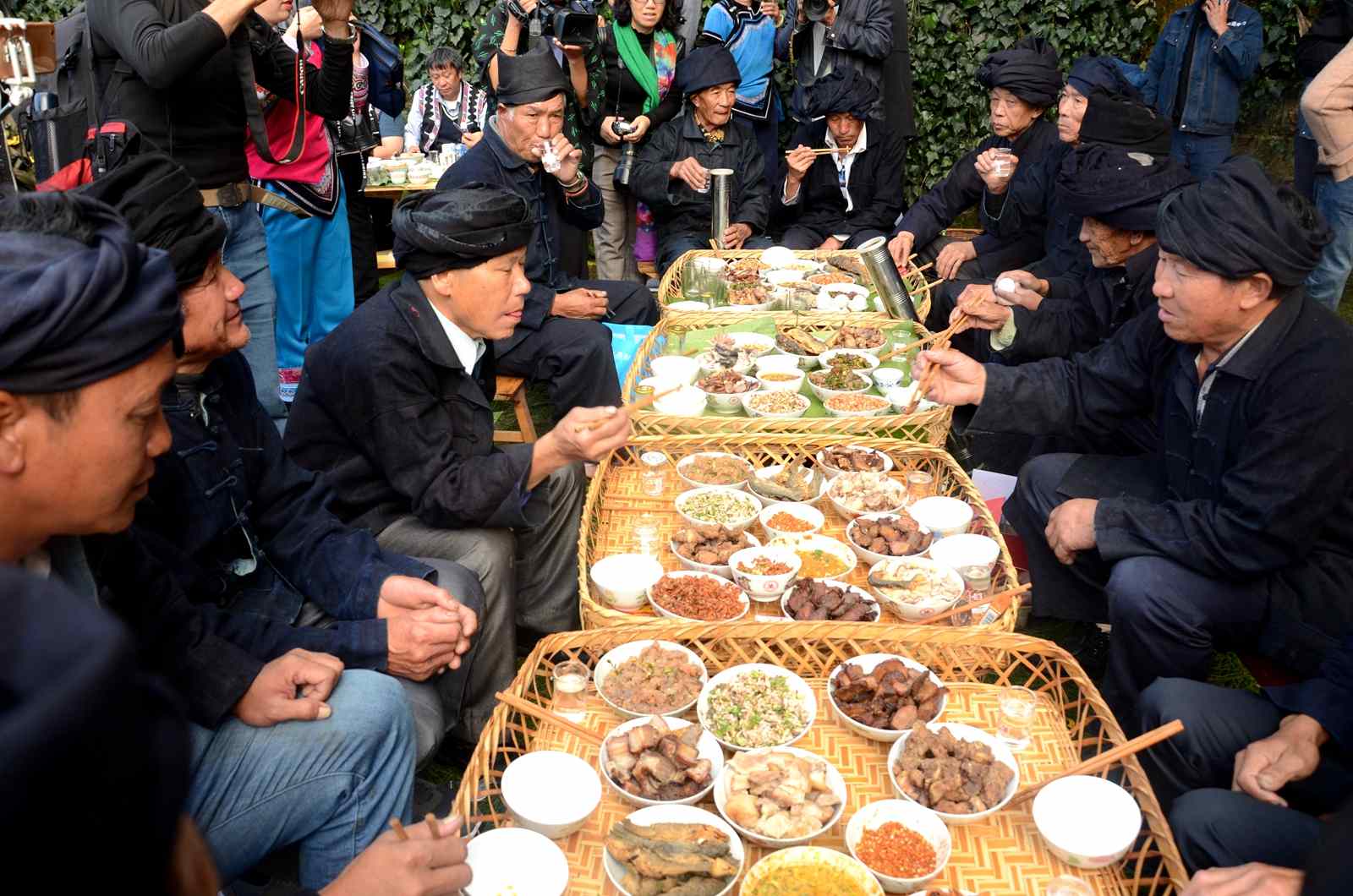
A group of Hani elderly people, known as “dragon heads” at the banquet. Their seats in the front of the banquet are called “dragon head seats.” /CGTN Photo
A group of Hani elderly people, known as “dragon heads” at the banquet. Their seats in the front of the banquet are called “dragon head seats.” /CGTN Photo
“It's similar to the Spring Festival of the Han people," Zhou Guo'an, a local Hani resident, told CGTN referring to the country's largest ethnic group. "We take this occasion to celebrate the harvest of the year.”
On this special day, what really matters is food. For locals, it's also an opportunity for them to exhibit their culinary skills, and each family would prepare the best they can offer – sticky rice, chicken, duck, cured beef, and even fried insects such as bamboo grubs and locusts.
“Almost all the food are cultivated and raised by ourselves. They are natural and authentic,” said Hani Zhang Hui.
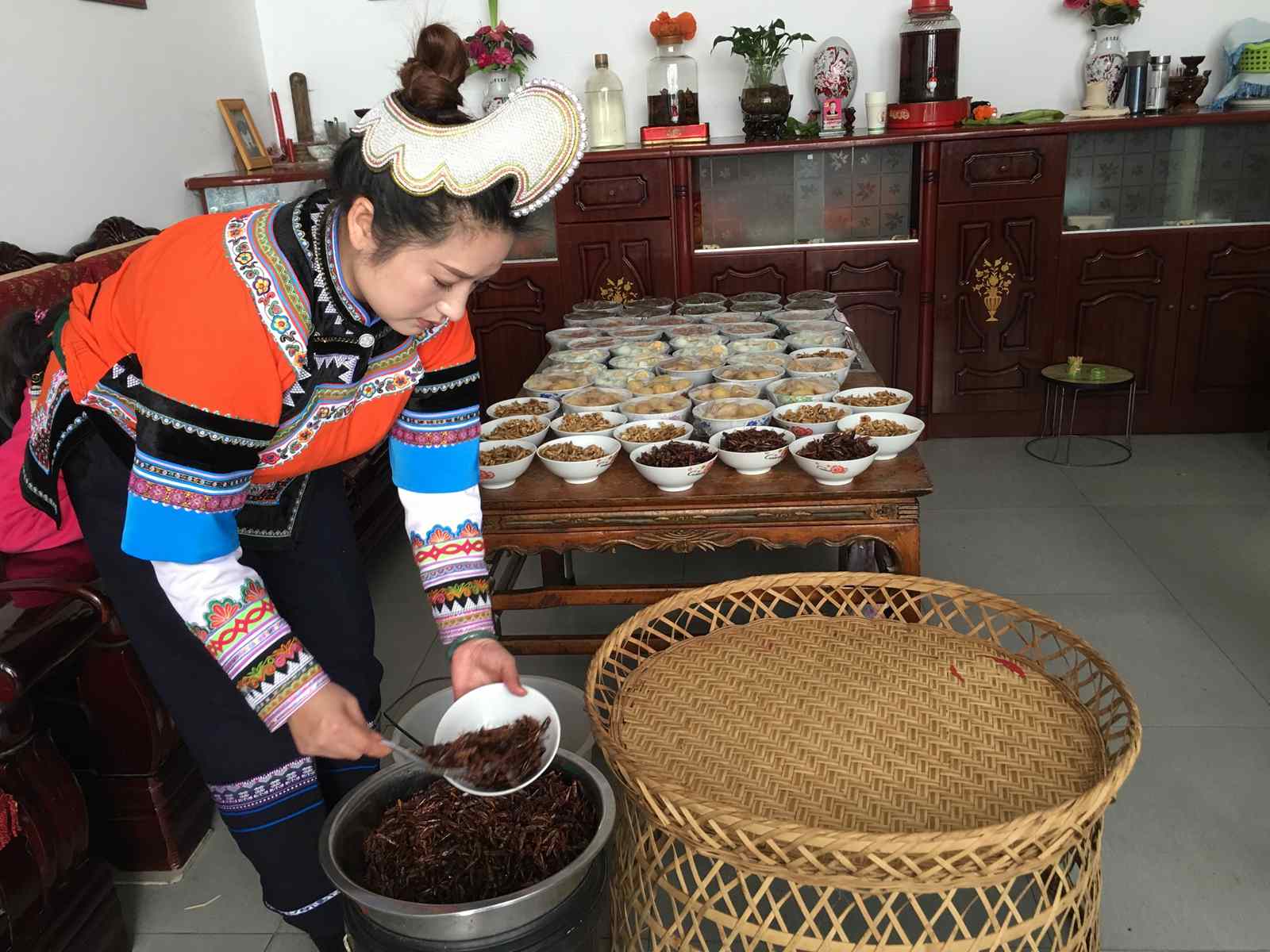
Zhang Hui from Honghe County prepares food for the Long Street Banquet. /CGTN Photo
Zhang Hui from Honghe County prepares food for the Long Street Banquet. /CGTN Photo
According to custom, each family would share their dishes with neighbors by placing their tables together, at times stretching hundreds of meters. The tables in the front are called “dragon head seats” designated for the honorable elderly people with great virtue and high prestige.
Before the banquet starts, the elderly, known as “dragon heads,” would hold a blessing ceremony to pray for a peaceful and prosperous year ahead.
In recent years, with the support of local government, the time-honored tradition has evolved into a carnival that attracts people from across the country, who are attracted by distinctive Hani culture, including food, costumes and diversified art forms.
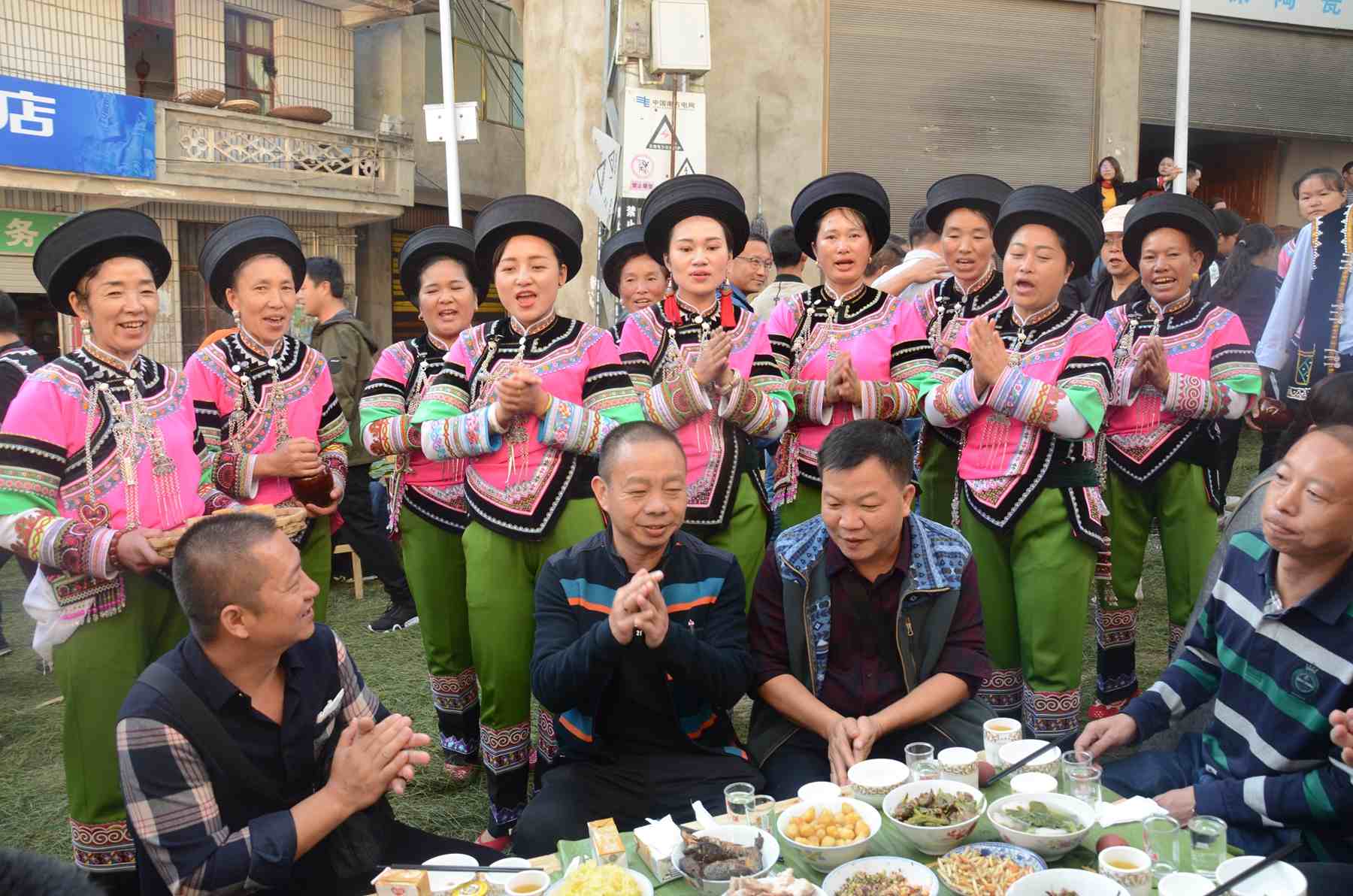
Local Hani women sing folk songs to entertain their guests from across the country during the banquet. /CGTN Photo
Local Hani women sing folk songs to entertain their guests from across the country during the banquet. /CGTN Photo
“Sixteen of us came here together for the Long Street Banquet. We all enjoy the lively atmosphere and are happy to share the local Hani people's joy from harvest,” said Yang Shundong from the Xinjiang Uygur Autonomous Region.
“The locals are very hospitable and the food is great. I expect to come back again,” said Li Cuijin, a woman from Kunming, capital of Yunnan Province.
Like many other remote areas, Honghe County still faces big challenges in its economic development. Local officials hope this activity can serve as a stimulus to improve the villagers' livelihoods.
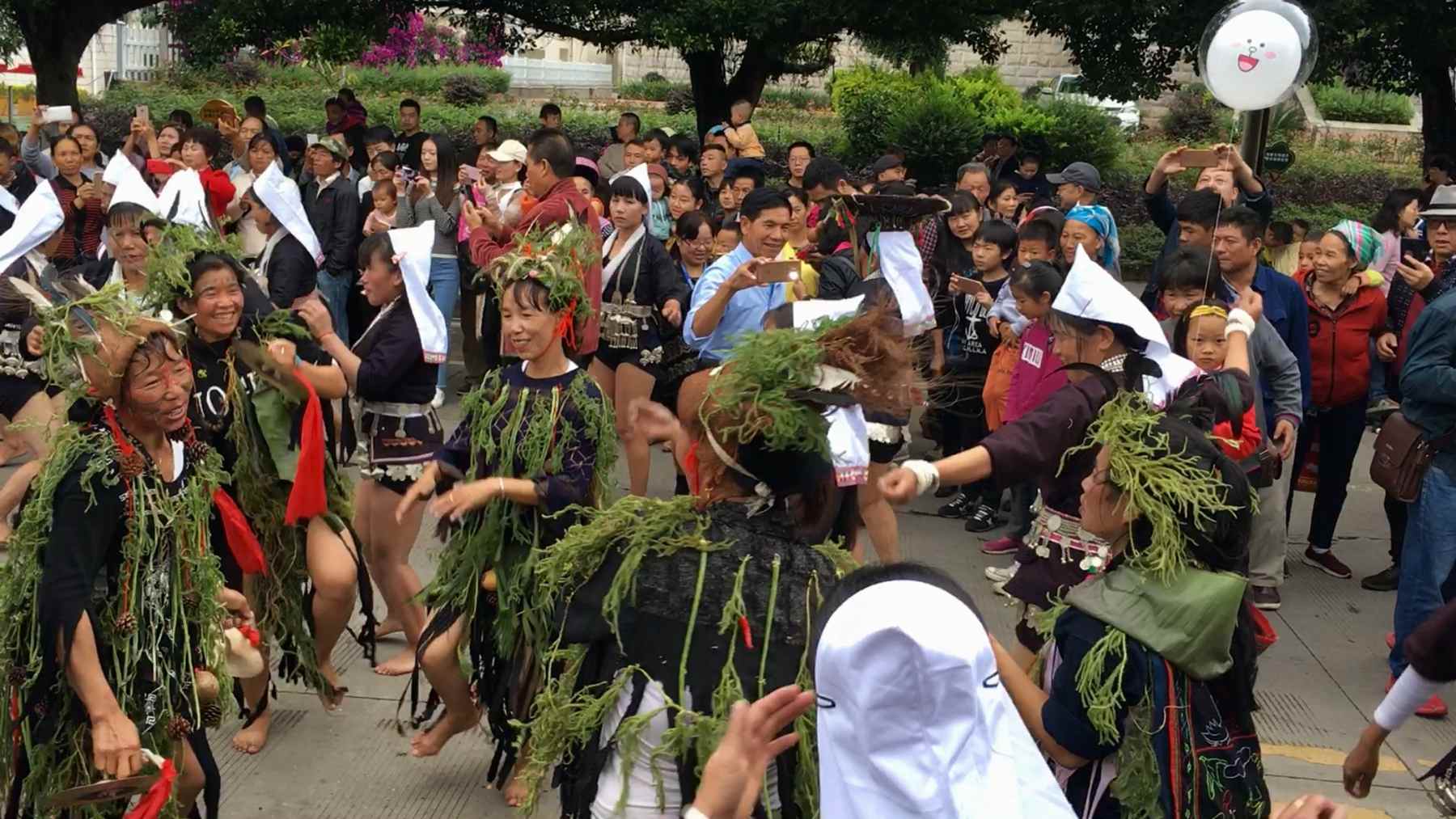
Hani women perform Lezuo Dance, a kind of Hani art form, to celebrate their New Year. /CGTN Photo
Hani women perform Lezuo Dance, a kind of Hani art form, to celebrate their New Year. /CGTN Photo
“We're now trying to help locals increase their income by promoting tourism. Maybe we cannot make them wealthy just through this activity, but I believe our efforts will pay off,” said Zhang Chunlin, head of Jiayin Township, one of the places that held the banquet.
Zhang said this is also a way of preserving and passing on their unique culture, which is a common concern for almost all ethnic minorities in China.
“Yet in the long run, more efforts are still needed,” said Zhang.

SITEMAP
Copyright © 2018 CGTN. Beijing ICP prepared NO.16065310-3
Copyright © 2018 CGTN. Beijing ICP prepared NO.16065310-3